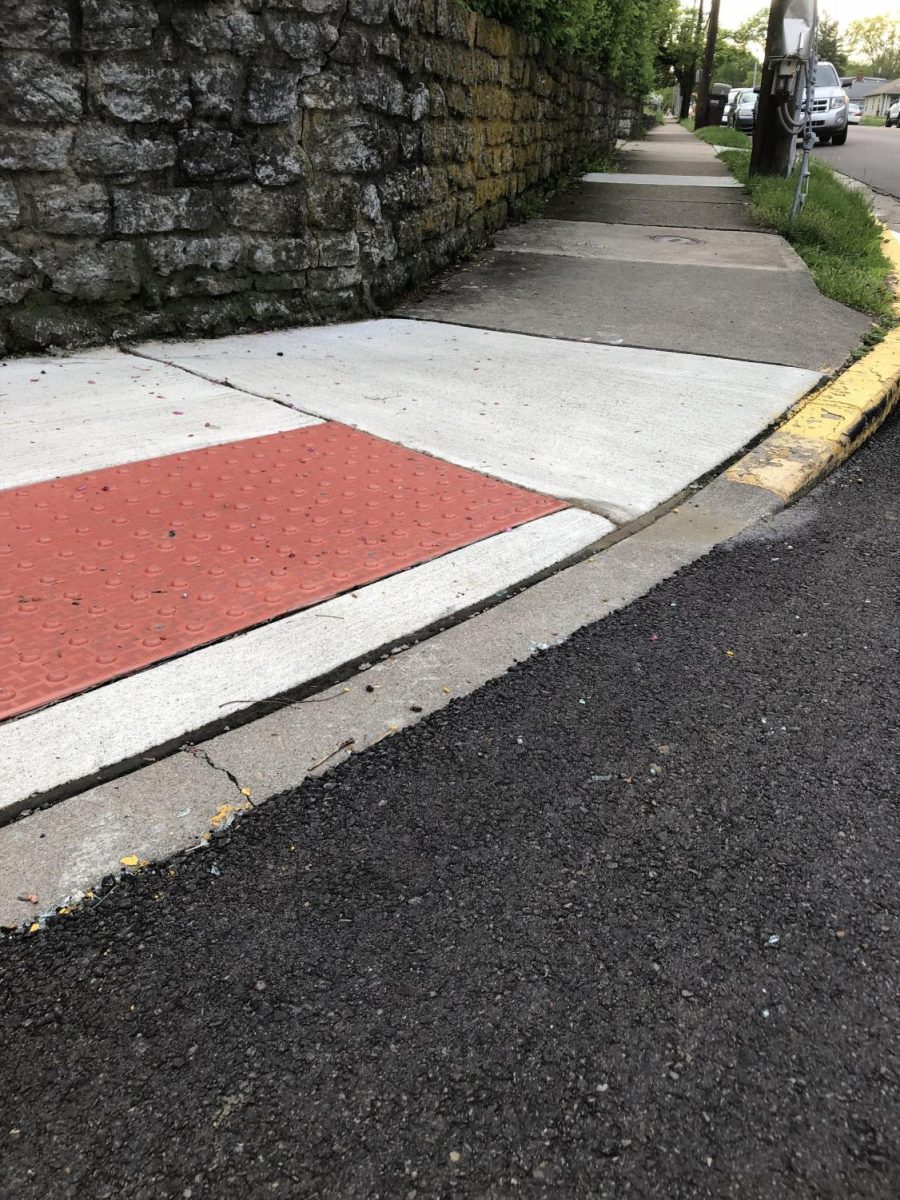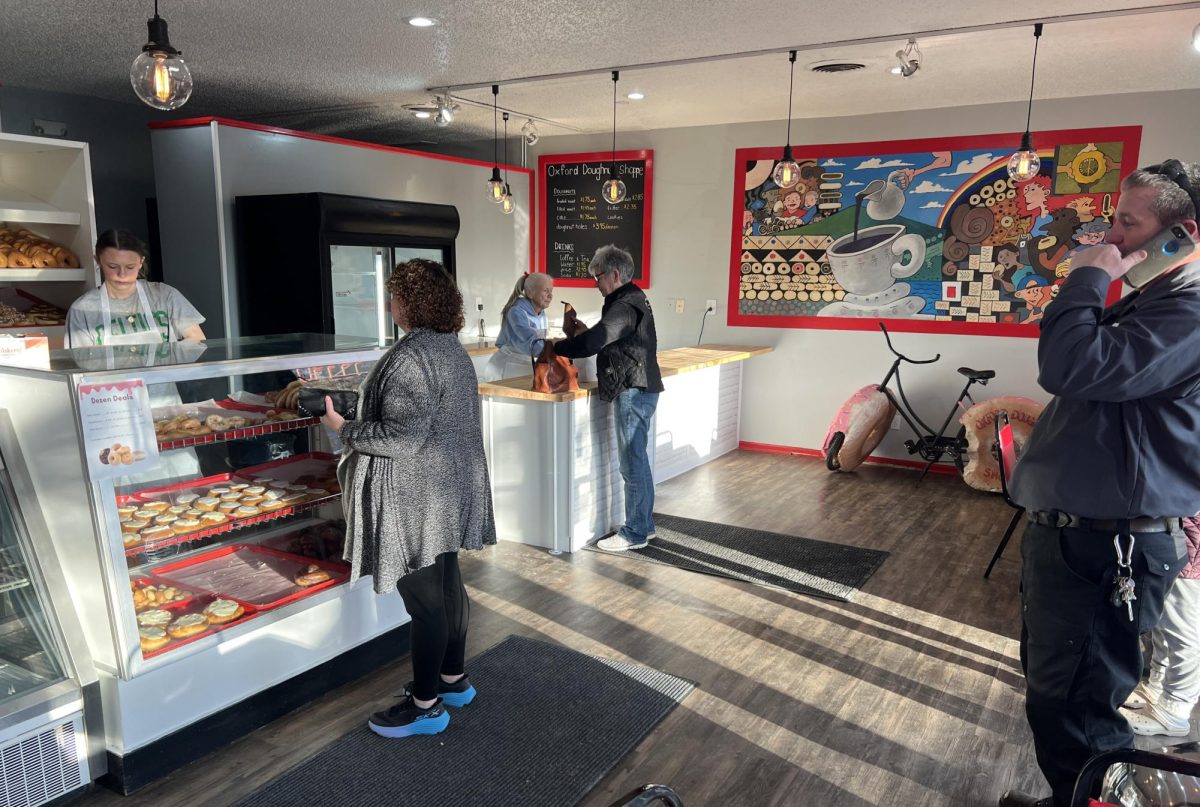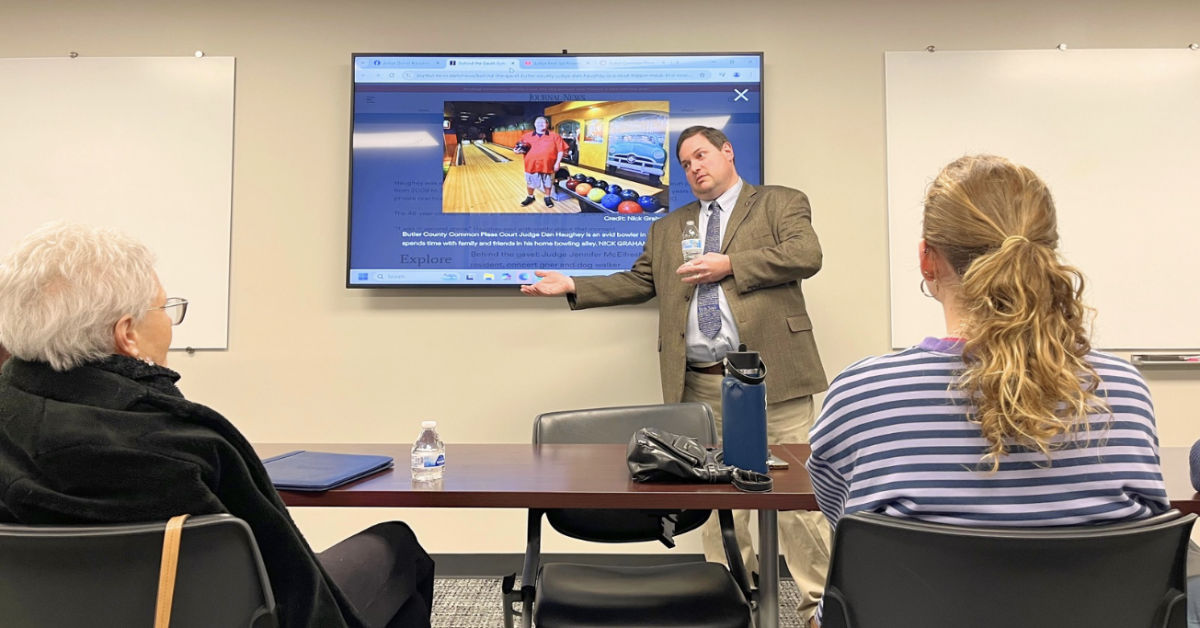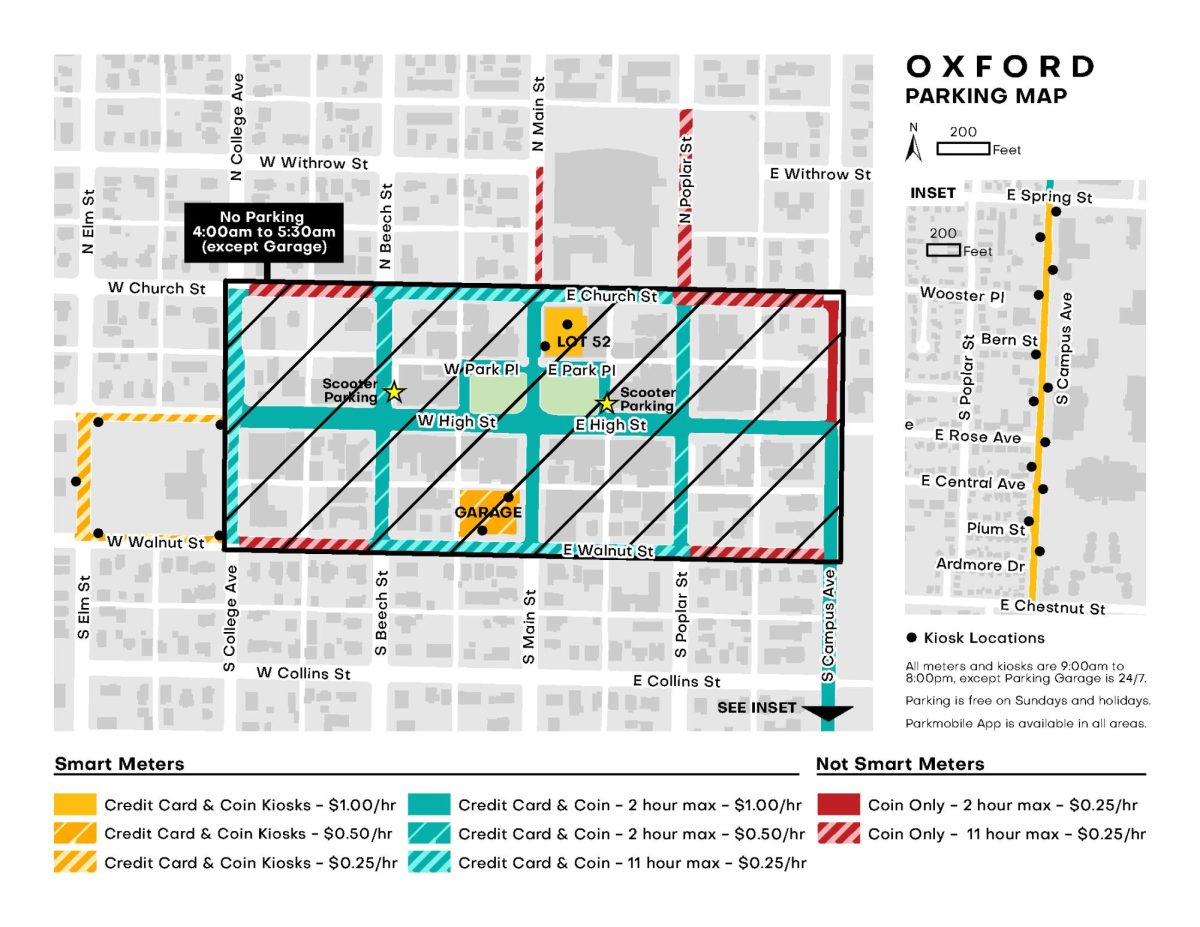For most of us, deciding on which college to attend revolves around geographic location, academic rigor, campus size, and tuition costs. For Miami University student Shelby Rice and other members of the low-vision community, one of the top priorities in selecting a college is making sure that the campus and surrounding town is walkable.
Rice, a freshman with 12% vision, toured several schools and ultimately selected Miami because of the flat campus terrain and the crosswalk signals that talk when it is time to walk.
She utilizes a walking stick to help her get around, and said that Miami has outstanding services for those in the low-vision community. She said she has enjoyed her time at Miami so far, but is striving to create a better experience for the low-vision community for herself and for after she leaves. Rice and others have partnered with two local businesses uptown, Bagel and Deli and Skippers, to create menus for those with a vision disability.
“If menus aren’t backlit, I have to make someone read the menu to me,” Rice said. “It dampens the mood.”
Once the menus are in place, all a customer will have to do is ask a worker for the braille menu at the restaurant. She said that regardless of disability everyone should get to enjoy the same amenities in Oxford.
“We hope that these restaurants getting on board with us will allow other businesses to follow suit,” Rice said. “We want them to be accessible to other disabilities, like wheelchairs.”
Life 30 Years After the ADA Passed
Oxford City Council has taken strides recently to create a more inclusive city experience. During its April 2 meeting, it passed a resolution for $89,645 to be used for the installation of handicap ramps with tactile dome mats. These will impact 13 intersections across town. The mats are embedded in the concrete, so someone who is visually impaired will be alerted that they are approaching an intersection by the changing texture of the sidewalk.
The almost 30-year-old Americans With Disabilities Act (ADA) was signed into law by President George H.W. Bush, and intended to provide equal rights and opportunities to Americans with disabilities. It contains five titles pertaining to elements such as equal employment opportunities, nondiscrimination of state and local services and telecommunications rights.
The Act was amended in 2008 to offer a broader interpretation of disabilities recognized by schools, testing agencies and employers. Some of these include learning, reading, thinking and concentrating.
Sam Perry, Oxford’s director of community development, said the city works to be ADA compliant. The 13 intersections slated for the new sidewalk mats are only the latest improvement. Many other intersections have already had updates added over the years. He noted that the city’s police station, now undergoing major renovations, is being made completely accessible with an elevator that will allow entry and egress on all floors.
Rice lamented that many people think the ADA solved all the problems faced by those with disabilities. She feels that more needs to be done, specifically in terms of overall mindset. One suggestion Rice has for able-bodied people is to take a day and try to live like someone with a disability and see what that experience feels like. She also asks that people keep those with disabilities in mind, instead of not thinking about them.
“People with disabilities are often separated from the traditional classroom during early schooling,” Rice said. “This is a dangerous mindset drilled into able-bodied people.”
Miami Changed After a Lawsuit
Miami has faced repercussions for lack of ADA compliance, including a 2016 lawsuit for using inaccessible classroom technologies that didn’t accommodate for those with disabilities. Fast-forward three years to today, the school now maintains an approach to technological accessibility that is cutting-edge.
The case, Dudley v. Miami University, was filed in a district court by a former Miami student who was blind. Aleeha Dudley stated that Miami had “excluded her from participation in and the benefit of Miami’s services, programs, and activities, discriminated against her on the basis of disability, and failed to take appropriate steps to ensure equally effective communication with her in violation of Title II of the ADA.”
The suit resulted in the United States Department of Justice issuing a consent decree to the University to make technology across campus accessible for those with disabilities, including those with vision, hearing, or learning disabilities. The decree mandated that web content and learning management systems must conform with specific guidelines, and that Miami must meet with every student who requires assistive technologies and procure technology that meets those students’ needs.
Andrew Zeisler has been a campus leader and advocate for inclusivity since his days of attending Miami in the 1980s. Now, Zeisler is the director of the Miller Center for Student Disability Services. He reflects that the conversation about accessibility has transformed from a few voices to a campus-wide discussion with fervent support from administration.
“In the 30 years I have been here, so much has changed,” Zeisler said. “To understand where Miami was, how far we have come, and where we are going, and that commitment to keep going and bettering our work is something we think about every day.”
Zeisler noted the 2016 lawsuit prompted the institution to take a new approach to accessibility in regard to technology. The constant evolution of technology is vastly different from the physical aspect of making campus accessible and brings new challenges. But the director said this lawsuit had some “silver linings.”
“Miami is now a leader in the work that we are doing in terms of technology and training faculty for mandatory accessibility training,” Zeisler said. “We have buy-in from the President, legal department and the provost.”
One change made is the addition of a new team with IT services who works to meet digital needs. Miller’s department works with the new team of technology coordinators, who in turn provide expertise with software, making sure things are captioned for students and testing web pages for accessibility. This team also specializes in “alt-media” which includes textbooks in e-format and braille. The team works with software procurement and professors to make sure everything is compliant.
Zeisler contends that many universities have a sole person to fulfill the role, whereas Miami has a team of five professionals. He also says that Miami has met all of the deliverables proposed by the Department of Justice, over 75 in total, and gives quarterly reports to the Department of Justice.
“With the lawsuit and decree, we now have a larger commitment to the student experience, which is everything we have been doing in our career,” Zeisler said. “I always say to faculty, you don’t choose who is in your classroom, and being prepared for cultural differences, technology accommodations, and preferred names is what makes us Miami and sets us apart.”
The Miller Center for Student Disability Services works with approximately 2000 students. Attention deficit/hyperactivity disorders are the most common disabilities the center sees, followed by mental health and learning disabilities. They base accommodations on three factors—student’s history of accommodations, what the student tells the center and documentation. The center recently received an endowment from Miami alums Scott and Susan Miller to support students with disabilities pursuing their degrees.






